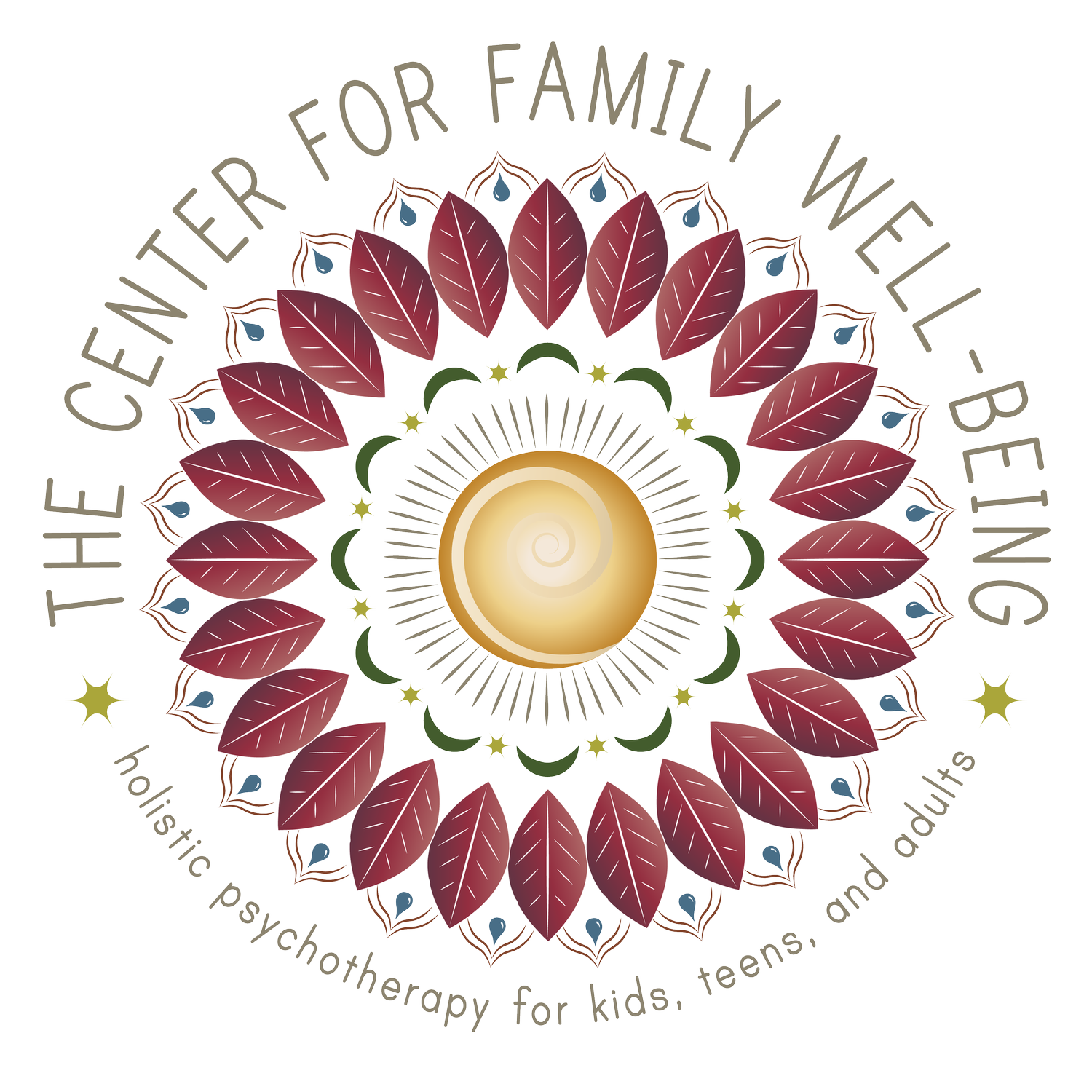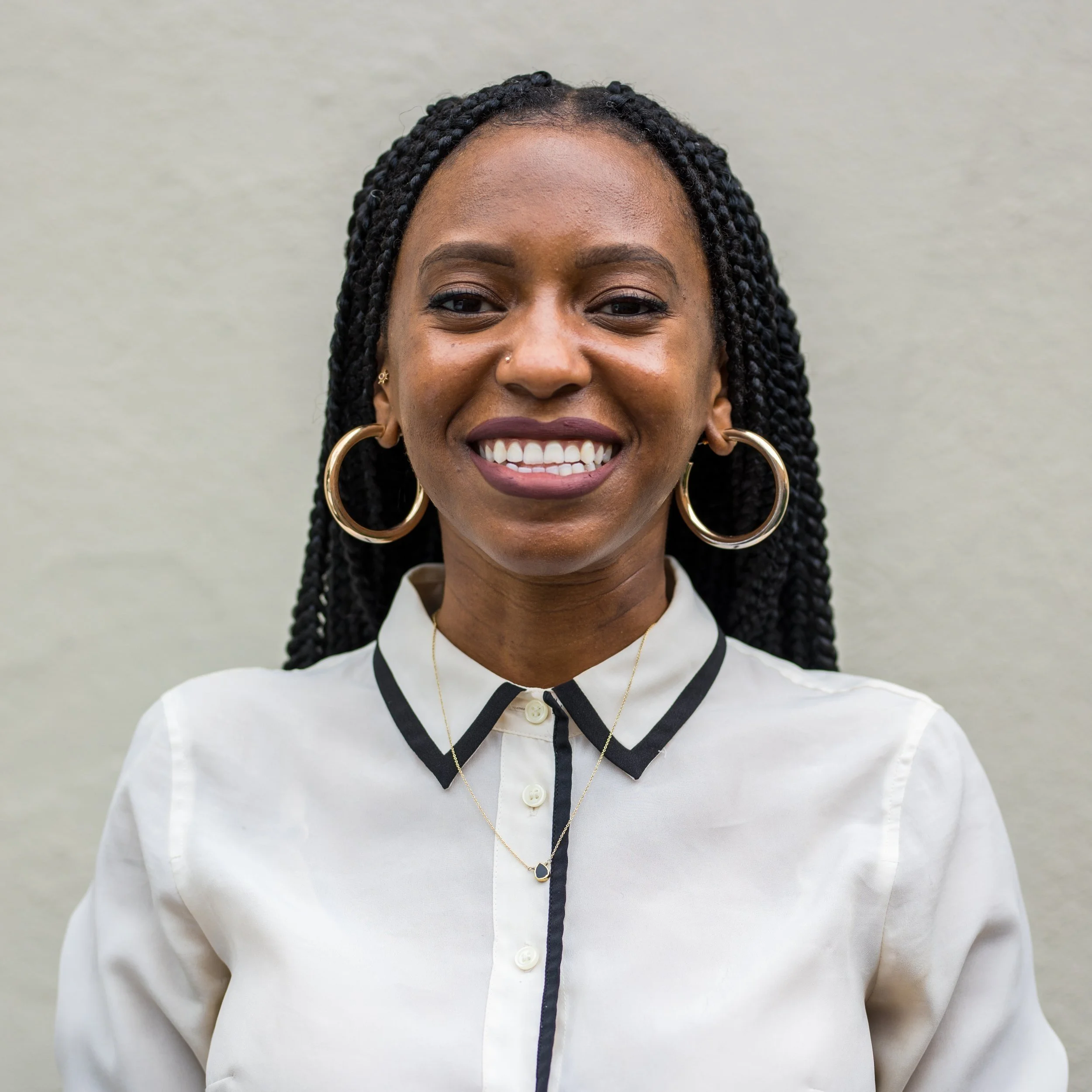Fall 2022: In the Spotlight: Aryn Davis
Meet Aryn Davis, MA EdHD, MEd
The Center for Family Well-Being is so pleased to welcome our newest therapist, Aryn Davis. Aryn comes to us with a rich background as an educator and mental health professional in DC schools. Her mission is bringing others to a place of deeper awareness and full presence in heart, body, and mind, to ultimately experience freedom and to become equipped with the skills, knowledge, mindsets, and resources needed to meet their mental health needs. Aryn immediately conveys her genuine affection for children and families– her passion for her work is nothing short of inspiring, and we count ourselves fortunate to be able to collaborate with her and to facilitate her work within our community. Meet Aryn:
Q: Hello, Aryn! Tell us a little about yourself.
I see myself as playing a lot of roles in life. I am a practitioner of contemplative spirituality; a creative who feels really fed when I’m able to put something in the world that didn't exist before; and community developer. That’s actually what initially called me to the school space, the ability to create community in a classroom. It's a passion of mine, I love bringing people together and helping people find safety, be seen, and experience true belonging in their communities. I minored in community development in college, and it didn't come about in the way that I may have planned, but it manifested in my work in schools, in ways that I could not have imagined at that time. I'm also a daughter, a partner, a sister and friend…and a lover of nature. I love plants, trees, and houseplants! I call them “my teachers”--we can learn so much from their nature–and they’re the most wonderful things to gaze at as they bring me peace.
Q: What really drove your journey from educator to therapist? How did you know you wanted to make the change?
I found myself in the classroom being way more preoccupied with the social emotional status and progress of the kids I was teaching, to the point where I was having to have some difficult conversations with my superiors who were wanting me to prioritize academic progress. And I felt like, yes, that’s what I'm here to do, but more importantly what's missing here is us leaning into our students’ social emotional wellness. That drive really took over about three to four years into my teaching career; around year six, it was too hard to suppress anymore and at that point I really had to say, “what is it that I love most about walking into a school building every day?” And when I realized that it was the social-emotional focus, I realized, “there’s a title for that! It's the school counselor!” And the steps became obvious after that. I was ignited, and I knew that I had to follow what was a deeper and vital calling.
Then there was my shift from schools to clinic-based care, and that was driven in many ways by the role of the pandemic: the mental health of so many people suffered. It really shifted my focus to long term wellbeing, and I felt a sense of urgency, so I knew I had to transition out of schools to make that focus really work.
Q: Say a bit more about that–can you explain to our families what’s different about school counseling vs. psychotherapy in a clinic like ours? What perspective shifts or expectation adjustments should parents and kids make between the two settings?
School counseling is short term in nature, and is intended to be solely for the purpose of students’ academic achievement; and it was the “solely” that was making me feel stuck. Psychotherapy is longer-term, and accommodates the often slow, but natural pace of change. I would say school counseling is typically more in-the-moment and responsive. Also in a clinic we can place greater emphasis on preventative care. I believe you need it all: we need to respond in the moment, to accommodate change, AND offer preventative care, so that we can create whole beings. But when your primary job is responsive care, it doesn't allow you the space to look forward in the same way. Schools have to evolve. We have to be intentional about creating space for that in the near future!
That all being said, the school counselor does indeed play a huge role in a student’s social emotional development; if you don’t know your child’s school counselor, seek them out, and request a touchpoint for your kid. This doesn’t need to be weekly by any means–and your school may not have the capacity for that anyway– but do convey to your child that there is a safe space within their school for them to explore their social emotional wellbeing.
Q: What advice do you have for parents who get a call from the school counselor or their teacher, suggesting they seek outside therapeutic support for a child?
If you do get that call from a counselor or teacher, follow it. They're letting you know that your child's mental health and emotional challenges go beyond the scope of the school setting.
And it demonstrates a level of true care. I think of it like this: if I was given the advice by my primary care physician to see a gastroenterologist, I would–and probably without question! When there’s a need for a specialist, we call in a referral. We psychotherapists are those specialists because we have the capacity to go deeper. And there’s really so much space within this practice for us to do that deeper work, and offer a holistic approach. Our goal is to partner with all the people within the various roles in the child's life. This kind of strategizing is what we’re talking about when we talk about preventative care.
Parents can keep in mind, too, that it’s never going to be a one size fits all approach for their child–the diversity of human nature prohibits it. So that's what therapy is all about!
My ask of parents is to shift away from focusing on immediate results, to focusing on the long game. This doesn't mean that you won't see immediate results; in fact the research says you will! But, just like anything you build, it takes time, and you want it to take time if it's going to have the fortitude that you seek. So allow your child’s progress in therapy to take the time that it needs.
Q: I know that even as you shift your emphasis to psychotherapy, the educator will always be within. How do you blend your experience as a teacher with your work in the clinical setting?
What comes up for me is that I'm hyper-aware that the child exists as a part of a larger system. Schools are ecosystems so I always saw my students this way. My primary focus is to continue to see children in this way by collaborating with their parents, their care providers, etc. I feel that it’s my job to take their entire ecosystem into account.
Q: It sounds like the perspective you carry over is similar to the one that helped you clarify your vision to step away from teaching and towards counseling in the first place!
That’s right! And I’ll say that the vision of the whole child is a direction I truly believe schools can move in, and some are doing it well; but when you have 25 plus kids in a room at one time, it’s really hard.
Q: The theme of our newsletter this time of year is always Back-to-School; what wisdom can you share with families about this time of year, given your depth of experience with this transitional season?
I would share that routines are essential. I used to work at a school that used the phrase “routine is king.” I think that is so necessary for us as adults to understand that when it comes to the health of children, their brains are wired for predictability. A lack of routines doesn't allow for predictability, and that can impact one's sense of psychological safety. The lower brain is much more developed than the front brain at the school age, so a child has less of a command on their executive functioning. It’s so important to keep this in mind– we’re asking them to use this part of their brain and we’re not giving them the routines and keys they need for that success.
It's of course so easy to overlook as a parent when you're juggling so many balls, and then multiply that by the number of little bodies in the house! So I say this with a lot of empathy for parents, and also with the knowledge of why a lot of kids struggle in school, and what a lot of kids are missing.
Routines are important around getting work done, but also taking space and breaks. You have to do homework, and then you have to cut it off– your child has to breathe, and they have to rest. It’s really useful here to collaborate with your students' teachers–ask them, “how much time should my child be spending on homework?” And let them know what your child is doing; if that doesn't match up, get insight from teachers on strategies and options.
Also, try to integrate school into the entire family routine. Maybe with a child who struggles with executive functioning, for example, don't let the book bag get dropped off anywhere– employ systems and routines, designating a specific and routine space for that bag. And since there will always be surprises, create space in the daily routine for those surprises, a designated time when you ask, “Do I need to sign anything? Do you have anything we need to get ready for (like the Science Fair, etc.)?”
Many routines we do as adults without even thinking about it or realizing it. But it's a skill that kids need to be taught, so my encouragement would be to start this early in the year, and try to be as consistent as possible with before-school and after-school routines.
Q: You will continue your consulting work with edwell, where you help teachers build trauma-informed classrooms. What’s a trauma-informed classroom?
Very simply put, it's a healing-centered learning space that’s backed by neurobiological research. It considers the whole child and the teacher, and it centers around providing students with regulation strategies, which includes school staff creating the conditions for psychological safety and belonging that can lead to academic success.
Q: So in your consulting work, you’re endeavoring to make the changes in classrooms you were yearning for when you were a teacher?
That’s exactly right! It’s providing the support that I wish that I had when I first started teaching years ago. Although I did attain a degree in education within my first few years of teaching, many teacher preparation programs were not focusing on trauma-informed teaching practices at the time. I was learning pedagogy and human development. So in my work at edwell I get to come alongside teachers and help them to create wellbeing practices that can be implemented in the classroom, and also practices that they can be using for their own wellbeing inside and outside of the classroom.
Q: What are you most looking forward to as you embark on your new role here at the Center?
So many things– but more than anything, it’s the space for deep collaboration with families. That is my job, my primary job. I’m so glad that I don't have to sacrifice one thing for the next in this new space that allows me to meet kids and families where they are, without the pressure of a school calendar.
And we’re so glad for that, too. Thank you, Aryn!

